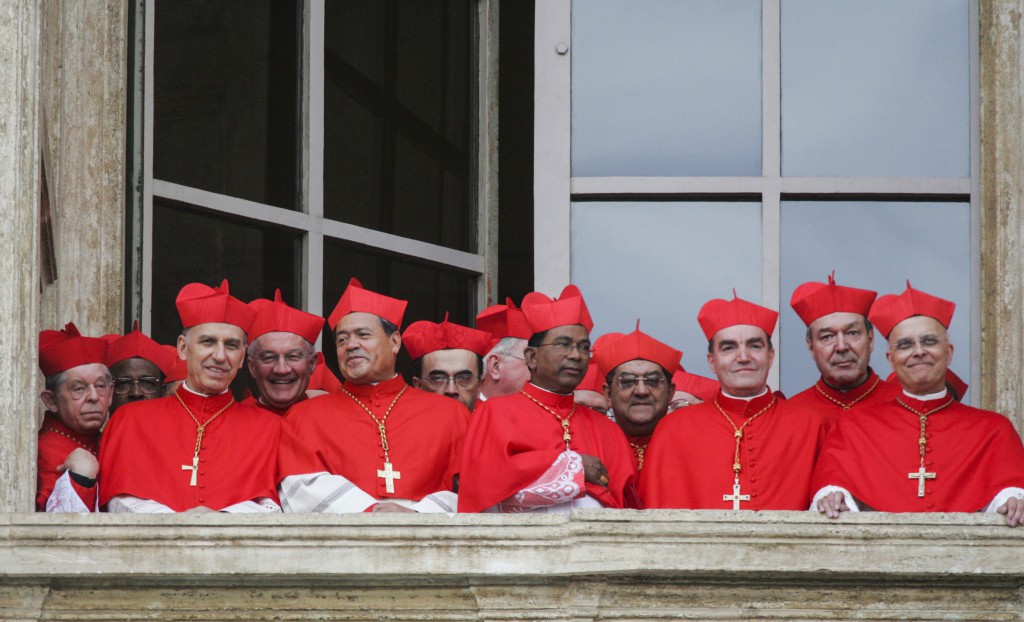
I have been talking with friends about the election of the new Pope and we have some questions. Who decides when the Conclave will begin? Can the elected person refuse to accept? And at what moment does he become Pope: with the election or with his inauguration
Many people have been asking questions like yours, so it is good to be able to answer them in this column.
The answers, by the way, are based on Pope John Paul II’s Apostolic Constitution Universi Dominici Gregis, issued in 1996 and amended in some matters by Pope Benedict XVI.
When the Apostolic See becomes vacant by either the death or the resignation of the Pope, the government of the Church, including the election of the new Pope, is entrusted to the College of Cardinals (n. 2).
The more important matters are dealt with in what are called General Congregations, which all the Cardinals who are not legitimately impeded must attend.
Cardinals over the age of eighty who cannot vote in the election may attend these Congregations but they are not required to do so (n. 7).
The General Congregation is to meet every day until the Conclave begins (n. 11).
Matters of lesser importance are handled by a Particular Congregation, consisting of only four Cardinals (n. 8).
Pope John Paul II determined that the Conclave is not to begin before fifteen days after the See becomes vacant, to allow all the Cardinals to be present.
But in any case the Conclave must begin by the twentieth day (n. 37). On 25 February 2013, Pope Benedict XVI issued an Apostolic Letter Normas nonnullas allowing an election to begin before fifteen days have elapsed, provided all the Cardinal electors are present.
It is understood that any Cardinals eligible to take part in the election who have indicated, for a good reason, that they will not be attending do not need to be present. It is up to the General Congregation to decide on which day the election will begin.
Can the person elected Pope decline the election? Given the enormous burden of responsibility before God and the Church that being Pope entails, it would be perfectly understandable if the person elected were reluctant to assume the office.
It is known that some of the Popes have felt this reluctance, among them Pope Benedict XVI.
But at the same time the person elected would have enough supernatural outlook to acknowledge that his election is an expression of the will of God, and for this reason he would normally accept the election.
In this regard Pope John Paul II’s Apostolic Constitution reads:
“I also ask the one who is elected not to refuse, for fear of its weight, the office to which he has been called, but to submit humbly to the design of the divine will. God who imposes the burden will sustain him with his hand, so that he will be able to bear it. In conferring the heavy task upon him, God will also help him to accomplish it and, in giving him the dignity, he will grant him the strength not to be overwhelmed by the weight of his office” (n. 86).
Naturally, this does not bind the one elected to accept the office. He can still refuse, but it would be most unlikely for him to do so. And as regards when the person elected becomes Pope, the answer is immediately.
Pope John Paul II declared: “After his acceptance, the person elected, if he has already received episcopal ordination, is immediately Bishop of the Church of Rome, true Pope and Head of the College of Bishops.
He thus acquires and can exercise full and supreme power over the universal Church” (n. 88). His inauguration will take place some days later but from the moment he accepts the election he already has all the powers of the Pope and he can exercise those powers.
What is more, within an appropriate time after his inauguration the Pope is to take possession of the Patriarchal Archbasilica of the Lateran” (cf. n. 92). The Lateran Basilica, consecrated in 324 AD, is the Pope’s cathedral church as Bishop of Rome.
Finally, when the Apostolic See is vacant the prayer for the Pope in Mass is not said, but the whole Church “spiritually united with Mary, the Mother of Jesus, should persevere with one heart in prayer; thus the election of the new Pope will not be something unconnected with the People of God and concerning the College of electors alone, but will be in a certain sense an act of the whole Church” (n. 84).
For more, see Fr Flader’s blog at fatherfladerblog.wordpress.com or contact Fr Flader on frjflader@gmail.com.